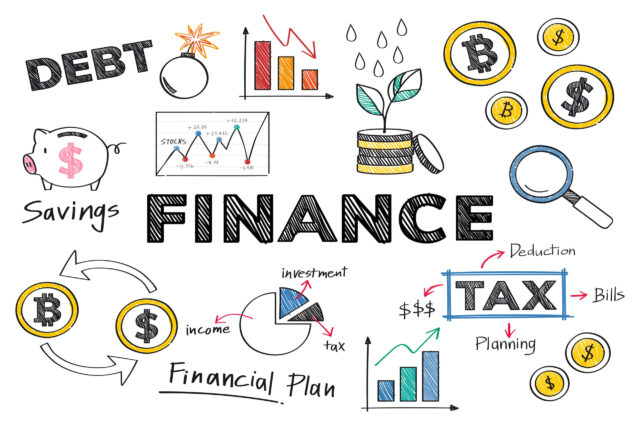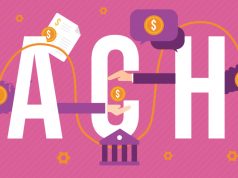
When you’re young, it’s easy to think that life is only about having fun and blowing any cash that you may get in your pocket. You may not be thinking ahead about things like retirement (or if you are, you can click here to find out when you can retire) or about saving for big purchases like your first home.
Eventually, it’s important to learn the truth. You are far more likely to enjoy your life if you embrace financial planning when you are young. You will be able to save for the things that are important to you, and you will be capable of making a much more comfortable life for yourself later on.
Of course, if you’re still not sold, we’re here to help. Here’s the reasons why you should embrace financial planning from a young age, and how you can do it with ease.
The Why

First of all, why is it important to embrace financial planning from a young age? Why should you do that when you can blow your cash on enjoyable vacations or on a fun night out?
Well, for starters if you practice financial planning then you are better prepared for anything life throws at you. You are more likely to handle financial emergencies better – after all, you never know what’s around the corner.
Not only that, but if you plan your finances well, you can enjoy those vacations and big investments much more because you will have learned to save efficiently.
Did we mention retirement? Well, when the shackles of full time employment aren’t pulling you down, there’s so much that you can do with your life. If you prepare for your retirement, imagine the fun you’ll have! You won’t need to struggle as many people do when they fail to prepare.
Finally, it gives you a sense of achievement. It may not seem fun to not blow all of your money in one go at the time, but you’ll certainly thank yourself for it later on. Having a plan and a structure can give us a sense of purpose – that can go a long way.
The How

So, how exactly does one embrace financial planning at a young age? Here’s what you need to know.
It’s All About the Budget

If there was a rulebook for financial planning, there would be one thing that would be at the top of that rule book. That’s right – the budget. Your budget is the foundation of your financial planning.
If you don’t know how to properly budget, then your efforts are going to be wasted. Not only that, but lacking a budget can be pretty stressful. You’ll feel a lot better when you have a budget to use.
So, how does one budget? This is where the magic of a spreadsheet comes into play. Open up a spreadsheet, first writing down your income every month – or week, depending on how often you get paid.
Now that you have that, you can then break down your monthly bills. How much do you owe for rent, your Netflix bill, and everything else that you need to survive? Subtract that number from your income to get a reflection of the money that you have left over.
Now, what should you do with that remaining money? The best thing to do is to divide it. Use some of it for personal money – the things that you like to do, such as going for meals with friends.
This is important – you are much less likely to blow huge sums of money when you have given yourself a little money to enjoy yourself with. The other part of the remaining money should go into your savings account. Speaking of which…
Open That Savings Account

Savings – what are those? They’re the foundation of your future! There’s been no better time to start a savings account than right now! Try to get a savings account with interest. To know more about the differences between checking vs savings accounts check this site.
This will mean that your money will grow in small amounts when you have money in the account. There are a lot of account types available with varying amounts of interest that you can earn, so make sure that you do your research first.
When you get paid, it’s worthwhile to set up some automatic transfers in your account to go straight into your savings account. That way, you won’t forget to put money in your savings account each month – your bank provider will do all of the work for you.
Making Goals

We all have our own motivations. If we don’t have motivation, we are far less likely to actually do a particular thing. That’s why it’s so important to set goals for your finances.
Set goals for the immediate future, things that are a few months to years away, and things that may still be decades away. Work out what it’s going to take to help you to achieve those goals. If you do this then you are more likely to be successful.
Make sure that the goals are clearly defined too. Is there a set amount that you will need to put into your savings each month? Stick to that number rather than putting a vague value on it. Using savings calculators can be helpful for this.
Figure Out Your Pension Plans

If you’re young, you may not be thinking about your life in your 70s and 80s, but you really should be. Make sure that you’re adding to your 401k while you’re still young! If you are putting more money towards it while you are young, you will have a much better life when you are older. It doesn’t have to be a huge amount either – every little helps.
Potential Reasons for Garnishing 401k
In some cases, a 401k plan may be subject to garnishment. A court or other garnishing authority may request to garnish a 401k plan if there is an outstanding debt or judgment associated with the plan’s owner. While it is rare, there are several reasons why courts may seek to garnish these retirement savings accounts in order to satisfy particular types of judgments. Daily Prosper offers more details.
Some of the more common examples of when a 401k might get garnished include:
* Unpaid taxes – if an individual owes the Internal Revenue Service (IRS), they could have their 401k money taken.
* Unpaid child support – when parents do not pay the required amount for child support, the court has the authority to take this money from their retirement plan.
* Student loan debt – if someone has defaulted on their student loans, they will likely at risk of having their 401k funds seized.
* State/local taxes – similarly, state or local government entities can initiate a garnishment against plans for unpaid back taxes owed by individuals.
It’s important to remember that funds taken from your 401k due to garnishment will not only reduce your balance but also reduce any future growth potential – losing out on compounding interest and investment opportunities due to someone else taking away your money can be quite costly over decades and needs to be considered before accepting any judgment that mandates you need to hand over part of your savings for any kind of payment obligation.
Conclusion
Financial planning is an essential skill, regardless of your age. Of course, it’s a lot easier if you start it while you’re young! By following the tips outlined above, you are much more likely to have an enjoyable life with well organized finances. Good luck!












